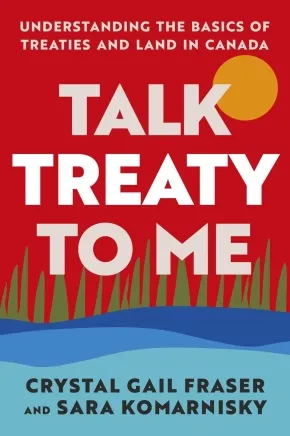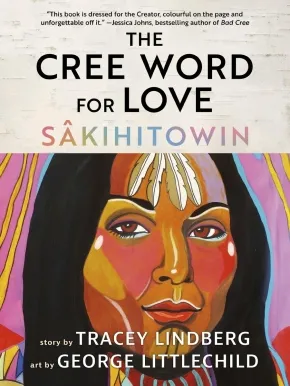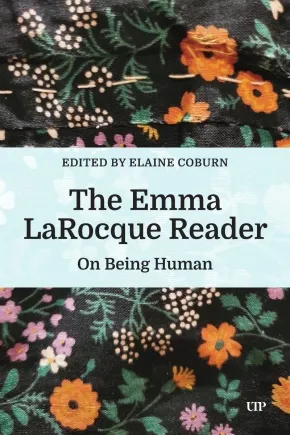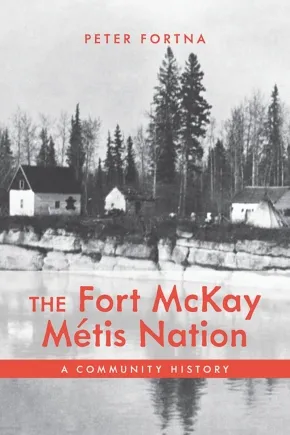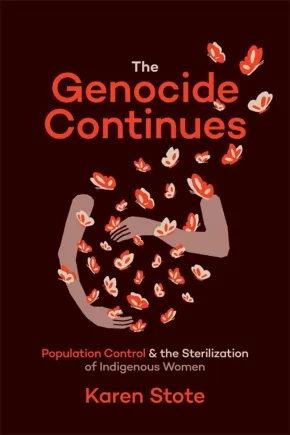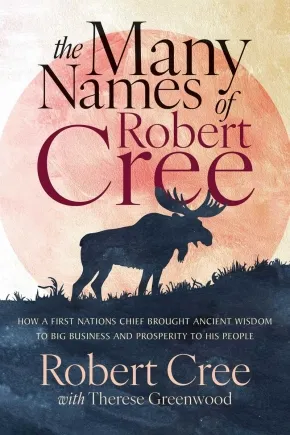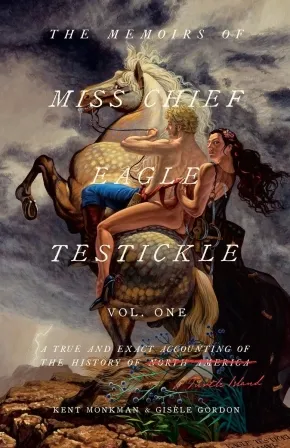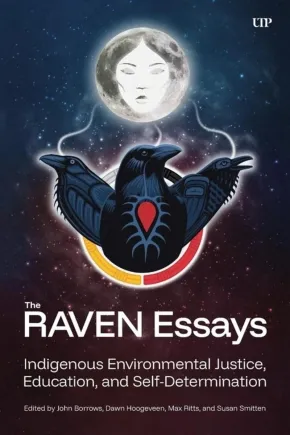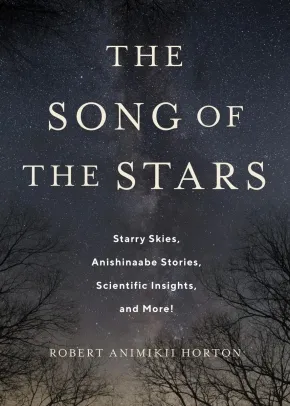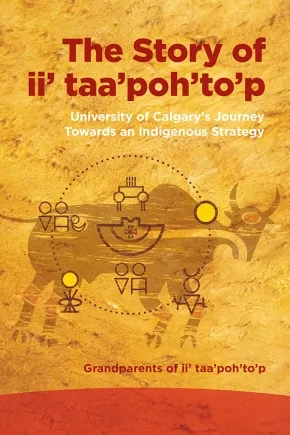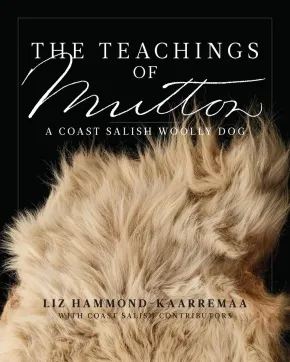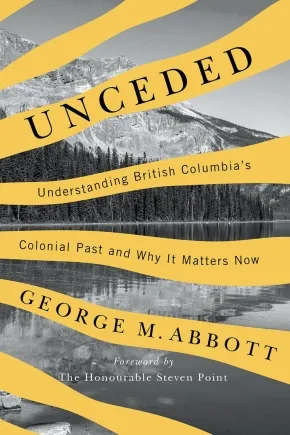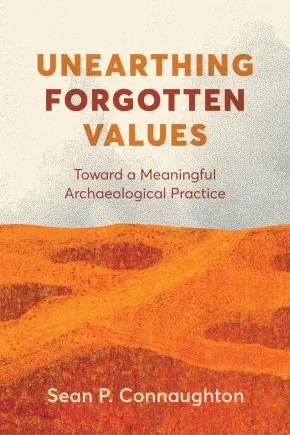Indigenous Peoples in Canada
Synopsis:
An essential and easy-to-read guide to treaties, Indigenous sovereignty, and land for all Canadians
Treaties cover much of Canada. Some were established thousands of years ago, with land and animals, and others date back to the time when Europeans first arrived in North America. These agreements make it possible for all of us to live, work, play, and profit on these lands. Additionally, treaties have profoundly shaped the relationship between Indigenous and non-Indigenous people. In Talk Treaty to Me, Crystal Gail Fraser and Sara Komarnisky untangle the complexities of treaties and set a path forward for greater understanding of all our roles, rights, and responsibilities. In this accessible, clear, and concise book, they discuss:
· Treaties among and between Indigenous Peoples
· The history of treaty-making between Indigenous Peoples and Britain, then Canada, from the very beginning to the present day
· Concepts like Métis scrip, modern land claims, Indigenous sovereignty, and unceded territory
· The (dis)honouring of treaties and the role of Canadian settler colonialism
· How the creation of Canadian borders interrupts Indigenous sovereignty and nationhood
· Important insights from gendered and queer perspectives on treaty and land
· The politics of land acknowledgements
· Reconciliation and Land Back movements
And more.
With a quick-reference timeline, maps, and black-and-white photographs throughout, Talk Treaty to Me concludes with a call to action and specific, tangible steps that all of us can take every day to support reconciliation.
Additional Information
256 pages | 5.25" x 8.00" | 40 b&w photos, spot illustrations & maps | Paperback
Synopsis:
Bestselling author of Birdie, Tracey Lindberg, and renowned artist George Littlechild join together in a stunning collaboration of story and art to explore love in all its forms—romantic, familial, community and kin—in the Cree experience.
In The Cree Word for Love, author Tracey Lindberg and artist George Littlechild consider a teaching from an Elder that in their culture, the notion of love as constructed in Western society does not exist. Here, through original fiction and select iconic paintings, Lindberg and Littlechild respond.
Together they have created and curated this collaboration which travels, season by season, mirroring the four rounds in ceremony, through the themes of the love within a family, ties of kinship, desire for romantic love and connection, strength in the face of loss and violence, and importance of self-love, as well as, crucially, a deeper exploration of the meaning of “all my relations.”
Together, art and story inspire and move readers to recall our responsibilities to our human and more than human relations, to think about the obligation that is love, and to imagine what it could possibly mean to have no Cree word for love. The result is a powerful story about where we find connection, strength, and the many forms of what it means to live lovingly.
Additional Information
224 pages | 6.00" x 8.00" | 20 full-color photos of paintings | Hardcover
Synopsis:
Emma LaRocque was born in 1949 in Lac La Biche into a Cree-speaking Métis family. She grew up in a one-room, kerosene-lit log cabin built by her father. At the age of nine, she fought her parents to attend school, where she encountered English and the colonizer’s harmful stereotypes of Indigenous peoples. Confronting the contradictions of colonialism sparked her journey as a writer and scholar, as she sought to understand the dissonance between her identity and the world around her.
The Emma LaRocque Reader is a comprehensive collection of her most significant writings, poetry and prose, offering an intimate window into the mind of one of Canada’s foremost Indigenous scholars. Through her work, LaRocque provides profound insights into the intersections of colonialism, sexism, and racism in Canada, while also critically celebrating the beauty of her community and culture. In the afterword, she reflects on fifty years of challenging the colonial enterprise. A vital contribution to postcolonial literature, The Emma LaRocque Reader intertwines the personal and the political to explore what it means to be human, offering a powerful testament to Indigenous resistance, resilience, and vision.
This collection brings together the works of Métis scholar Emma LaRocque, offering a half-century of her poetry and prose, and shedding new light on Canada, colonialism, and Indigenous resistance.
Educator Information
Chapters
Foreword by Armand Ruffo
Preface by Elaine Coburn
Acknowledgments by Emma LaRocque
Acknowledgments of Permissions to Reprint
Introduction by Elaine Coburn
1975 A Personal Essay on Poverty (Excerpt from Defeathering the Indian)
1983 The Métis in English Canadian Literature
1988 On the Ethics of Publishing Historical Documents
1989 Racism Runs through Canadian Society
1990 Preface: Here Are Our Voices: Who Will Hear?
1990 Geese (poem)
1990 Nostalgia (poem)
1990 “Progress” (poem)
1990 The Red in Winter (poem)
1990 Incongruence (poem)
1990 Loneliness (poem)
1990 Beggar (poem)
1990 Tides, Towns, and Trains
1992 My Hometown, Northern Canada, South Africa (poem)
1993 Violence in Aboriginal Communities
1994 Long Way from Home (poem)
1996 The Colonization of a Native Woman Scholar
1996 When the Other Is Me: Native Writers Confronting Canadian Literature
2001 Native Identity and the Métis: Otehpayimsuak Peoples
2001 From the Land to the Classroom
2004 When the Wild West Is Me
2006 Sweeping (poem)
2006 Sources of Inspiration: The Birth of "For the Love of Words": Aboriginal Writers of Canada
2007 Métis and Feminist
2009 Reflections on Cultural Continuity through Aboriginal Women’s Writings
2010 Native Writers Reconstruct: Pushing Paradigms
2013 For the Love of Place – Not Just Any Place: Selected Métis Writings
2015 “Resist No Longer”: Reflections on Resistance Writing and Teaching
2016 Contemporary Métis Literature: Resistance, Roots, Innovation
2016 Colonialism Lived
2017 Powerlines (poem)
2022 Wehsakehcha, Comics, Shakespeare, and the Dictionary
2023 Afterword
Index
Additional Information
348 pages | 6.00" x 9.00" | Paperback
Synopsis:
This community history chronicles the processes that led to the founding of the Fort McKay Métis Nation in northern Alberta.
This is the definitive history of the Fort McKay Métis Nation. It traces the evolution of the community from the mid-nineteenth to the early twenty-first century, paying special attention to genealogy, land-use, land-tenure, and responses to mass oil sands development.
The Fort McKay Métis Nation carefully considers the community’s unique historical context, drawing on a broad range of sources including archival research, oral histories, grey literature, and community literature. It examines the complex interrelations between the Fort McKay Metis Nation and their neighbors, the Fort McKay First Nation, and their ways they have connected with each other.
Completed in partnership with the community, The Fort McKay Métis Nation provides perspectives which have never before been shared. It is an important, unique history of a community in the heart of the oil sands.
Additional Information
272 pages | 6.00" x 9.00" | Paperback
Synopsis:
Indigenous Peoples in Canada have experienced coerced sterilization under eugenics legislation since the 1930s, and the violence has never stopped, even though eugenics fell into disrepute. In The Genocide Continues, Karen Stote traces the historical, political, economic and policy context informing the coerced sterilization of Indigenous women from 1970 onward. She shows how a powerful idea paved the way for the expanded violations of Indigenous People’s bodies and futures. That idea was population control — a concern with who occupied land and how resources were distributed — and it was a central thread guiding public health interventions from eugenics to family planning.
The Genocide Continues offers new insights to show how federal, provincial and corporate activities intersected to criminalize and regulate Indigenous reproduction. Saskatchewan, which first established family planning policies in the 1970s and is now the province with the highest number of Indigenous women coming forward with experiences of coerced sterilization, is Stote’s case study to demonstrate why family planning activities consistently targeted Indigenous women.
Stote weaves compelling archival evidence with principled storytelling to connect violence against Indigenous bodies to violence against Indigenous lands. Unless and until colonialism, extractivism and dispossession are addressed, a genocide against Indigenous peoples will continue.
Reviews
"Karen Stote has skillfully woven archival documents with evidence in policy, philanthropy, and medicine to show the repulsive side of Canada’s health care system as an assimilation tool. This book recounts the reasons why forced and coercive sterilization of Indigenous Peoples happened and is still happening." - Karen Lawford, Queen's University
Additional Information
288 pages | 6" x 9" | Paperback
Synopsis:
Daring and vulnerable, this is the highly anticipated new collection from Griffin Poetry Prize winner Billy-Ray Belcourt.
In The Idea of An Entire Life, Belcourt delivers an intimate examination of twenty-first-century anguish, love, queerness, and political possibility. Through lyric verse, sonnets, fieldnotes, and fragments, the poems, sometimes heart-breaking, sometimes slyly humorous, are always finely crafted, putting to use the autobiographical and philosophical style that has come to define Belcourt’s body of work. By its close, the collection makes the urgent argument that we are each our own little statues of grief and awe.
Reviews
"To read Billy-Ray Belcourt’s The Idea of An Enitre Life is to experience genre as a place between landscapes, but also beyond them: horizon as 'line break,' infrastructure as 'wound,' 'an image of a forest someone else/was supposed to know by heart.' These poems are achingly beautiful. Belcourt writes what’s already broken, breaking in real-time, 'in order to repair it.' How this new form might arrive, 'miraculously' but also diligently, an act of recuperation and courage that’s on-going, 'meandering' but also (always) 'incomplete,' becomes what happens when we read."—Bhanu Kapil
Additional Information
96 pages | 5.00" x 7.50" | Hardcover
Synopsis:
A vital account of the life and many names of Robert Cree, and his plan for a peaceful, sincere, and just path to reconciliation in an angry and chaotic world.
His mother called him “Bobby Mountain.” Elders called him “Great Man.” His people called him “Chief.” Oil men called him “Mr. Cree.” But the government called him “Number 53.” Robert Cree was all of these while facing his people’s oppressors and freeing the ghosts of tortured spirits.
The Many Names of Robert Cree is his first-person account of survival in a brutally racist residential school system designed to erase traditional Indigenous culture, language, and knowledge. It is also the story of an epic life of struggle and healing, as Cree takes the wisdom of his ancestors and a message of reconciliation to the halls of government and to industry boardrooms.
In the storytelling tradition of his people, Cree recounts his early years in the bush, his captivity at a residential school, his struggles with addiction, his political awakening as one of Canada’s youngest First Nation Chiefs, and the rising Indigenous activism of the late 20th and early 21st centuries. He also recounts the oil industry’s arrival on his poverty-stricken reserve and the ensuing struggle to balance economic opportunity with environmental challenges.
Throughout, Cree’s leadership is rooted in his unshakable commitment to the sacred traditional teachings of his people. His beliefs give him the strength to focus on hope, dignity, and building a better future for his community. Now a respected Elder and spiritual leader, Cree champions forgiveness as a powerful force that can bring healing and transformation for all.
Additional Information
264 pages | 6" x 9" | Paperback
Synopsis:
From global art superstar Kent Monkman and his long-time collaborator Gisèle Gordon, a transformational work of true stories and imagined history that will remake readers’ understanding of the land called North America.
For decades, the singular and provocative paintings by Cree artist Kent Monkman have featured a recurring character—an alter ego of sorts, a shape-shifting, time-travelling elemental being named Miss Chief Eagle Testickle. Though we have glimpsed her across the years in films and on countless canvases, it is finally time to hear her story, in her own words. And, in doing so, to hear the whole history of Turtle Island anew. The Memoirs of Miss Chief Eagle Testickle: A True and Exact Accounting of the History of Turtle Island is a genre-demolishing work of genius, the imagined history of a legendary figure through which profound truths emerge—a deeply Cree and gloriously queer understanding of our shared world, its past, its present, and its possibilities.
Volume One, which covers the period from the creation of the universe to the confederation of Canada, follows Miss Chief as she moves through time, from a complex lived experience of Cree cosmology to the arrival of European settlers, many of whom will be familiar to students of history. An open-hearted being, she tries to live among those settlers, and guide them to a deeper understanding of the interconnectedness of all beings and the world itself. As their numbers grow, though, so does conflict, and Miss Chief begins to understand that the challenges posed by the hordes of newly arrived Europeans will mean ever greater danger for her, her people, and, by extension, all of the world she cherishes.
Blending history, fiction, and memoir in bold new ways, The Memoirs of Miss Chief Eagle Testickle are unlike anything published before. And in their power to reshape our shared understanding, they promise to change the way we see everything that lies ahead.
Reviews
"Long a persona stalking the paintings of provocative Cree artist Kent Monkman, Miss Chief Eagle Testickle steps off the canvas to tell her own story—and that of the Indigenous peoples of Turtle Island—in a two volume collaboration with Gisèle Gordon. Lavishly illustrated with Monkman’s paintings, The Memoirs of Miss Chief Eagle Testickle is at once (and seamlessly) a unique story of an even more unique deity, an exposition of nêhiyaw (Cree) beliefs and a primer in nêhiyawêwin (Cree Language), and a deeply researched history of contact, colonization, and resurgence. A full-blown remediation of the politically-charged and erotic world of Monkman’s paintings, these books educate, inspire, entertain, and leave the reader breathless."—Steve Collis, 2024 VMI Betsy Warland Between Genres Award judge
Additional Information
264 pages | 6.51" x 9.99"" | Full-colour art throughout | Paperback
Synopsis:
Named after the Respecting Aboriginal Values and Environmental Needs (RAVEN) nonprofit organization, The RAVEN Essays is an anthology that celebrates a decade of prize-winning student essays. Since 2012, RAVEN has awarded an annual essay prize to honour students who champion the vital importance of Indigenous rights and self-determination, both in Canada and globally. The essays featured in this collection highlight exceptional student work while reflecting on the evolving relationship between Indigenous politics and academia. From issues like fishing rights and the Trans Mountain Pipeline to challenges of sexism and conservation policy, these essays capture a transformative period in Indigenous struggles, offering insights that resonate far beyond the Canadian settler state.
The anthology also includes contributions from prominent scholars such as Glen Coulthard, Dara Culhane, Michael Fabris, Sarah Hunt, and Heather Dorries. Five complementary essays explore various aspects of structural change, institutional constraints, and broader commitments to Indigenous knowledge within university settings. Aimed at readers in Indigenous law, environmental studies, anthropology, and geography, The RAVEN Essays is a book created by students for students, and by academics for the academy.
Together, the contributors reflect on the powerful formation and enactment of Indigenous law, environmental stewardship, place-based knowledge, pedagogy, and literacy – both within the academy and in the broader community, across land, water, and culture.
This collection celebrates emerging scholars in Indigenous studies, featuring student essays that explore Indigenous justice, ethics, and environmental justice, while highlighting a decade of collaboration with RAVEN, a legal defence organization.
Educator Information
Chapters
Educator Information
306 pages | 6.00" x 9.00" | 11 Illustrations | Paperback
Synopsis:
Indigenomics in action-moving beyond Indian Act economics towards Indigenous economic sovereignty
In this groundbreaking new work, Carol Anne Hilton, author of the bestselling Indigenomics, explores the phenomenon of growing Indigenous economic power and sovereignty, achieved despite monumental historic injustices.
The Indigenous economy in Canada is on track to exceed $100 billion. Yet full Indigenous participation at the economic table is still fundamentally lacking, due in large part to the inherently colonial and racist policies of the Indian Act. Hilton deconstructs these systemic barriers and maps an ethical way forward based on radical inclusion and Indigenomics in action.
Coverage includes:
- The far-reaching social and moral consequences of Indian Act economics-a tool used to legislate away Indigenous rights and jurisdiction with the express purpose of erasing First Nations
- The true cost of maintaining the status quo, from perpetuating inequality and cycles of Indigenous poverty, to lost opportunities for value-creation in Indigenous and settler economies
- Twenty-five transformative trends driving Indigenous economic growth.
Required reading for Indigenous organizations, Nations, and allies; business leaders and investors; lawyers and policymakers; governments at all levels; and everyone interested in reconciliation, decolonization, and building a just, prosperous, and inclusive society.
Reviews
"Hilton's work reaffirms the significance of relationship economics. Her words clearly illustrate that Indigenomics is the path for the future. As we move through the portal of this time, knowing that pandemics change our world, let's walk through to a path of restorative economics, founded on land, spirit, and the reality of Mother Earth's wealth, which is our responsibility to acknowledge and respect. The time of Keynesian economic analysis has passed, along with the empire. The time of cooperation is here." -Winona LaDuke, executive director, Honor the Earth Carol Anne
"Hilton mounts a convincing case that the rigidity of the Indian Act has put the rest of Canada in a static status-quo headspace that sees Indigenous Peoples as taken care of; meaning they don't see how adept they are in their economic empowerment as they consistently score in the open net." -Bill Gallagher, resource strategist
"A dynamic pathway to equitable Indigenous economic liberation and advancement." -Ruth Mojeed Ramirez, Chief Equity Officer, The Inclusion Project
"A comprehensively insightful guide for advancing Indigenous economic growth and inclusion." -Vinod Rajasekaran, CEO, Future of Good
"An essential primer for those seeking to understand and celebrate the economic rebirth of Indigenous communities." -Ken Coates, professor emeritus, University of Saskatchewan
Educator Information
The Indigenous economy is surging, but full Indigenous economic participation is still lacking, thwarted by the colonial and racist policies of Canada’s Indian Act. The Rise of Indigenous Economic Power deconstructs these historic and systemic barriers and presents an ethical response based on Indigenomics in action.
Additional Information
264 pages | 6.00" x 9.00" | 5 b&w illustrations | Paperback
Synopsis:
Since the earliest days of human memory, countless generations have turned their eyes to the skies in wonder, drawing patterns, understanding the stars’ connection to cycles and events, and carrying their stories and teachings forward to subsequent generations.
The Song of the Stars offers a unique journey through the skies, linking us to generations of ancestors who marvelled at the same stars we still gaze upon today. The book brings together Anishinaabe cultural teachings about the cosmos and the Anishinaabemowin language with scientific insights to demonstrate how both viewpoints can help us foster deeper and more meaningful relationships to the Earth and the cosmos. Robert Animikii Horton, Anishinaabemowin educator, proves that this dual perspective can be a source of awe and wonder, inspiring in us a love of both language and science.
Demonstrating how Anishinaabe cultural teachings and scientific insights can complement one another and need not be irreconcilable opposites, The Song of the Stars provides a combination of perspectives that cultivates a deeper understanding of the vast mystery surrounding our place in the universe.
Educator Information
Contents
1. In Awe of the Awe-Inspiring
2. Aki: The Earth
3. Giizis: The Sun
4. Gichi-giizis: The Solar Eclipse
5. Naawakwe: Solar Noon
6. Ma’iingan Omiikana: The Sun’s Ecliptic
7. Aadwaa’amoog: Orion’s Belt
8. Waawaate: The Northern Lights (Aurora Borealis)
9. Jiibay Miikana: The Milky Way
10. Gookomisinaan Dibiki-giizis: The Moon
11. Gaagige-giizhig: The Universe
12. Anang: Star
13. Ojiig Anang: Fisher Star
14. Ojiig: The Big Dipper
15. Gichi-Ogimaa Anang: Vega
16. Gaa-bibooniked: The Wintermaker
17. Maang: The Little Dipper
18. Bagonegiizhig: The Pleiades
19. Moonz: Pegasus
20. Onwaajige Anang: Halley’s Comet
21. Madoodiswan: Corona Borealis
22. Ma’iingan: Canis Major
23. Nanaboozhoo: Scorpius
24. Waaban Anang: The Morning Star
25. Biidaaban, Waaban, Zaagajiwens, & Mooka’am: The Process of Sunrise
26. Mishibizhiw: Leo, Cancer, and Hydra
27. Gaa-madoodood: Hercules
28. Bangishin Anang: Falling Star
29. Binesi: Cygnus
30. Mishiginebig: Draco
31. Ikwe Anang: Venus
32. Directions and More
Additional Information
120 pages | 6.00" x 9.00" | Hardcover
Synopsis:
A dynamic framework for the development of an Indigenous strategy that shares the engaging story of ii’taa’poh’to’p at the University of Calgary.
The University of Calgary’s Indigenous strategy, ii’taa’poh’to’p, lays the path for a journey of transformation and renewal for truth and reconciliation through ways of knowing, doing, connecting, and being.
The Story of ii’ taa’poh’to’p is the story of the creation of the University of Calgary’s Indigenous Strategy. The result of an enlightening process of relationship building and deep learning and listening, it required the intentional and careful creation of parallel paths for institutional and Indigenous frameworks to create the strategy. Authentic conversations occurred in the ethical space between the parallel paths, allowing for increased understanding of differences and similarities between cultures.
This book captures powerful and emotional stories that emphasize the importance of reconciliation and decolonizing organizations. It demonstrates that trusting relationships can be developed between Indigenous and non-Indigenous relatives and lays out a dynamic framework and approach for the development of an Indigenous strategy.
The Grandparents of ii’ taa’poh’to’p welcome readers to learn from their experience. They share insightful lessons about the importance of being relational; honouring ways of knowing and doing from other cultures; developing generational strategies that persist over time; understanding the impacts of fear; and making assumptions about people’s prior knowledge. They discuss how relationship building through deep listening across cultures is essential to the development of an Indigenous strategy. The Story of ii’ taa’poh’to’p is essential reading for all those interested in the development of an Indigenous strategy in the pursuit of truth and reconciliation.
Educator Information
About the Authors: The Grandparents of ii ’taa’poh’to’p are a collective of leaders from diverse cultural backgrounds and experiences who guided the development of the Indigenous strategy at the University of Calgary.
Additional Information
176 pages | 6.00" x 9.00" | Paperback
Synopsis:
The pelt of a dog named “Mutton” languished in a drawer at the Smithsonian for 150 years until it was discovered, almost accidentally, by an amateur archivist. This book tells Mutton's story and explores what it can teach us about Coast Salish Woolly Dogs and their cultural significance.
Until now, there has been very little written about the enigmatic Coast Salish Woolly Dog, or sqʷəmey̓ in the Hul'q'umi'num language. According to Indigenous Oral Histories of the Pacific Northwest, this small dog was bred for thousands of years for its woolly fibres, which were woven into traditional blankets, robes and regalia. Although the dogs were carefully protected by Coast Salish peoples, by the 1900s, the Woolly Dog had become so rare it is now considered extinct.
Co-authored with weavers, Knowledge Keepers, and Elders, The Teachings of Mutton interweaves perspectives from Musqueam, Squamish, Stó:lō, Suquamish, Cowichan, Katzie, Snuneymuxw, and Skokomish cultures with narratives of science, post-contact history, and the lasting and devastating impacts of colonization. Binding it all together is Mutton's story—a tale of research, reawakening, and resurgence.
Reviews
“What a compelling story, reflecting a way of life, practical knowledge, artistry and change in the Pacific Northwest! Mutton, the domesticated woolly dog, represents so much more than a museum collection or a source of weaving material. Generations of breeding, learning and sharing, caring and trading are mirrored in the discovery of his pelt in a drawer at the Smithsonian. Liz Hammond-Kaarremaa and her respected Salishan co-authors and Knowledge Keepers have brought Mutton into the present, and in doing so, have given us a new and unique perspective on the complex history of this region and on the meaning of Truth and Reconciliation. The book is clearly and thoughtfully written, and supplemented with excellent illustrations. It is a ‘must read’ for anyone wishing to know more about weaving arts, dog breeds, Indigenous cultures and/or history in northwestern North America.” — Nancy J. Turner, Distinguished Professor Emerita, University of Victoria
“Conscientious and accessible, The Teachings of Mutton weaves a charming and informative history, walking through the discovery of his pelt in a museum drawer to the modern science that reveals the shape of this dog’s life. Highlighting and correcting generations of non-Indigenous misinterpretation, the intertwined histories provided by Salish knowledge keepers reveal the nuanced Indigenous sciences of dog husbandry, spinning, weaving, and the cultural significance of Woolly Dogs while telling a lively story.” — Kathryn Bunn-Marcuse, PhD, curator of Northwest Native art and director of the Bill Holm Center for
Additional Information
264 pages | 8.00" x 10.00"
Synopsis:
In British Columbia, land acknowledgements often refer to “unceded territory.” Yet many people remain uncertain about the history behind these words or their implications for the future of the province.
Unceded reveals the BC government’s history of injustice toward First Nations, providing the context for understanding the province’s current reconciliation efforts, including modern treaty negotiations. Treaty commissioner George M. Abbott combines archival research with a former cabinet minister’s insider perspective on government to chronicle over 150 years of BC-Indigenous relations. Abbott’s account details how early government officials refused to negotiate treaties and instead coerced First Nations onto small and scattered reserves while granting settlers access to vast tracts of land. Despite sustained Indigenous resistance, the situation only worsened as non-Indigenous demands for land and natural resources increased in the decades that followed.
It was only after several Supreme Court decisions affirmed Indigenous land rights that BC sat down at the negotiating table. More recently, the province has taken notable steps toward reconciliation, concluding modern treaties and passing legislation that acknowledges Indigenous rights. As Abbott shows, overcoming the legacy of colonialism is no small task, but achieving justice is worth the effort it takes.
This book is for readers of BC history, those who follow provincial politics, or anyone invested in the future of British Columbia. It is essential reading for elected officials and policy makers and will also appeal to scholars and students of Canadian history, political science, and Indigenous-settler relations.
Reviews
"Unceded is an excellent account of the relationship between First Nation groups and the government of British Columbia. It is well-researched and enriched by interesting insights from George Abbott’s own involvement in more recent developments as a member of the provincial cabinet."— Jim Reynolds, author of Canada and Colonialism and former general counsel to the Musqueam First Nation
"I wish to thank George Abbott for his book about our colonial past. It is only with a better understanding of our history that we can have a better chance of creating a brighter future for First Nations in British Columbia."— From the foreword by the Honourable Steven Point, Grand Chief of the Stó:lō and BC’s first Indigenous Lieutenant-Governor
Additional Information
280 pages | 6.00" x 9.00" | Paperback
Synopsis:
About 90 percent of archaeological activity in North America is driven by private-sector development. In the process, archaeology is often used to undermine the interests of those whose material culture it allegedly seeks to preserve and interpret. Unearthing Forgotten Values explores the disrespectful and ultimately unethical nature of much commercial archaeology – or cultural resource management (CRM) – and proposes a praxis that puts Indigenous communities and their heritage first.
Based on lengthy experience working with and within Indigenous communities in British Columbia and around the world, Sean P. Connaughton discusses such thorny issues as the meaning of decolonization, Indigenous land rights and sovereignty, the commodification of heritage and corporatization of archaeology, and how the state continues to support projects that will exacerbate climate change. Weaving together real-life stories, fieldwork, scholarship, data, introspection, and an inquiry into human values, he promotes a more inclusive, equitable practice, illustrating the ways in which CRM can be infused with lessons drawn from Indigenous world views and ways of being.
Unearthing Forgotten Values is a rare study that charts a practical course for change. Professional archaeology will be the better for it.
This informative examination of private-sector archaeological practice in British Columbia will be invaluable to students and practising archaeologists. Its candid, topical approach will also appeal to a global audience of Indigenous and non-Indigenous social scientists who are involved in archaeology.
Reviews
"This book presents important points that should be considered by practising cultural resource management professionals, as well as suggestions for initiating change to help Indigenous peoples regain control over their heritage." — Dr. Joe Watkins, senior consultant, Archaeological and Cultural Education Consultants
Educator Information
Table of Contents
Preface
Introduction
1 Birth of an Anthropologist
2 Working in CRM, a Cautionary Tale
3 Industrial Archaeology
4 Indigenous Rights
5 A Matter of Values
6 Reimagining Archaeology
Conclusion
Notes; References; Index
Additional Information
222 pages | 6.00" x 9.00" | 4 b&w photos, 4 maps, 3 charts, 1 table | Paperback

